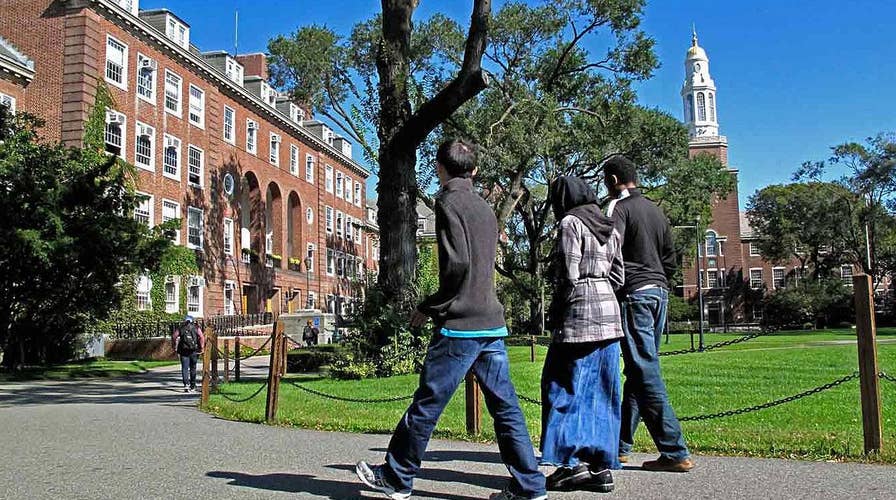California lawmakers are pushing what could be the most comprehensive college aid program in the country, pitching a bill that not only covers tuition payments but other expenses like books and transportation.
While already facing concerns about the attached taxpayer cost, the “Degrees Not Debt” higher education package has four parts aimed at lowering student debt that on average amounts to $20,000 a person in California.
"It's a big problem. That's why we're doing this. It hurts their ability to start their career, buy a home, get married,” California Assemblyman Kevin McCarty told Fox 40.
The first part of the plan focuses on community college tuition and would make the first year free for all full-time, in-state students. It also would develop the “Success Grants” program, which helps low-income California community college students with various education costs.
The bill would fight Gov. Jerry Brown’s attempt to phase out the “Middle Class Scholarship,” which provides tuition aid for lower- and middle-class students. Lastly, the bill would implement a “Degrees Not Debt Scholarship” to tackle those other non-tuition expenses for University of California and California State University students.
This goes beyond states like New York, which recently unveiled its attempt to offer free tuition in January. Most programs, like those in Oregon and Tennessee, focus only on tuition expenses.
“When you think about the cost of college, we focus many times, rightly so, on the cost of tuition,” McCarty said in a Sacramento press conference on Monday. “But we know that it’s much more than tuition. The students can tell you, it’s about the cost of living in your dorms or student housing, it’s about books and transportation.”
The plan is expected to cost an estimated $1.6 billion a year in its entirety. While lower than initial projections, the plan's price tag still has raised concerns.
Republican Assemblyman Rocky Chávez, vice chairman of the chamber’s Committee on Education, doubts the bill will be approved.
“I don’t think it will be pushed through,” Chávez said, citing the competing financial strain on the budget from health care.
He also said the bill doesn’t address a bigger problem. “The real problem is that it takes 5.7 years to get a college degree, which is costing students additional money,” he said. “The change should be to ensure that students graduate in four years. The bottom line is that we can’t throw money into a system that needs to be revamped.”
The package, if approved, would act as a supplement to existing California financial aid, with students still able to access the programs already in place such as federal Pell Grants, state supported Cal Grants, university grants and the Middle Class Scholarships that McCarty and his fellow lawmakers are fighting to save.
The bill also expects families making over $60,000 a year to contribute to their children’s college funds, as well as requiring the students themselves to pitch in by having a part-time job.
“It’s by far the most comprehensive and wide-reaching proposal in the country,” said Lupita Cortez Alcalá, executive director of the California Student Aid Commission, in a statement. She acknowledges that it is not realistic to expect full coverage for all students, which is why "we have to pick and choose."

























